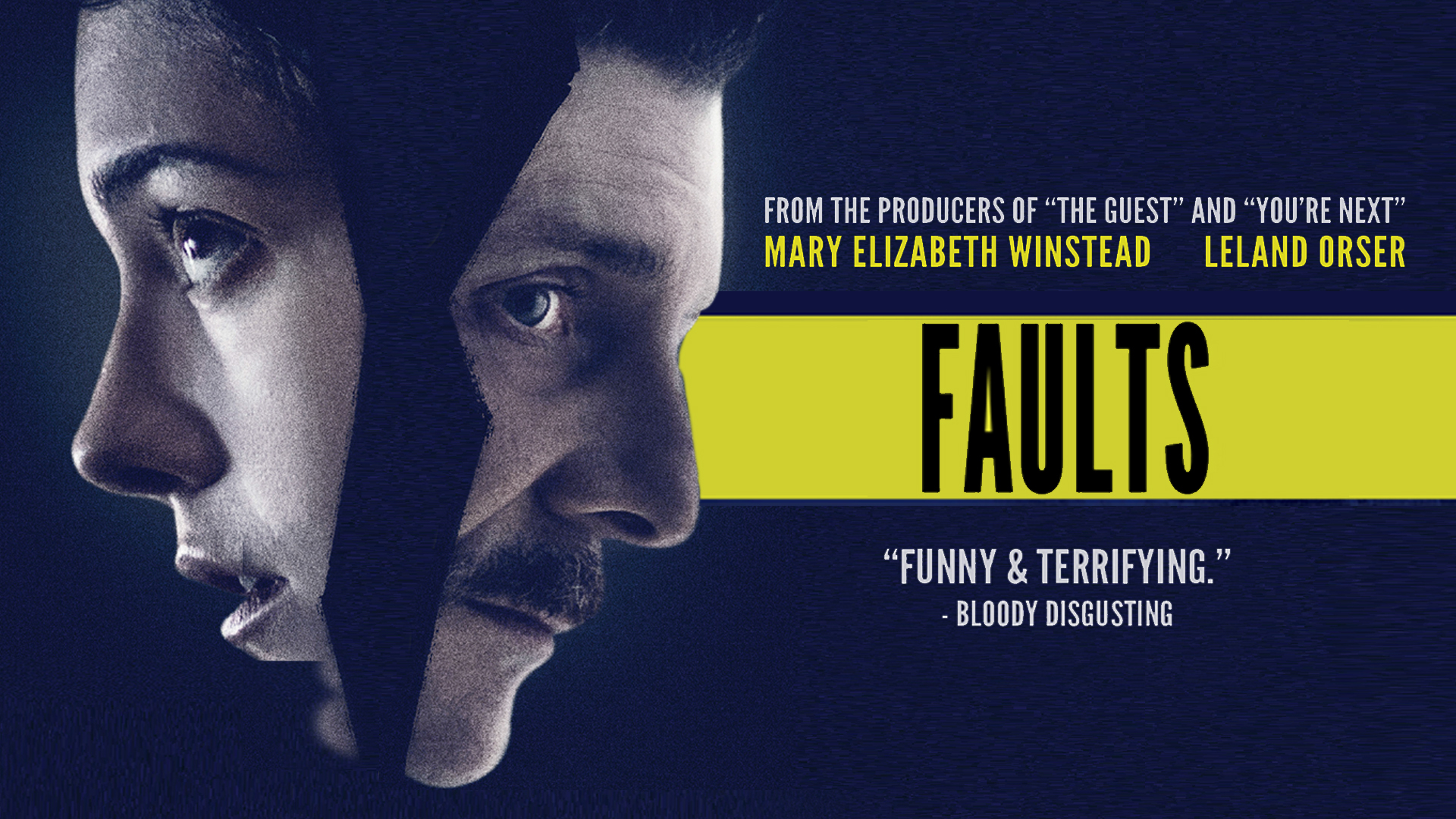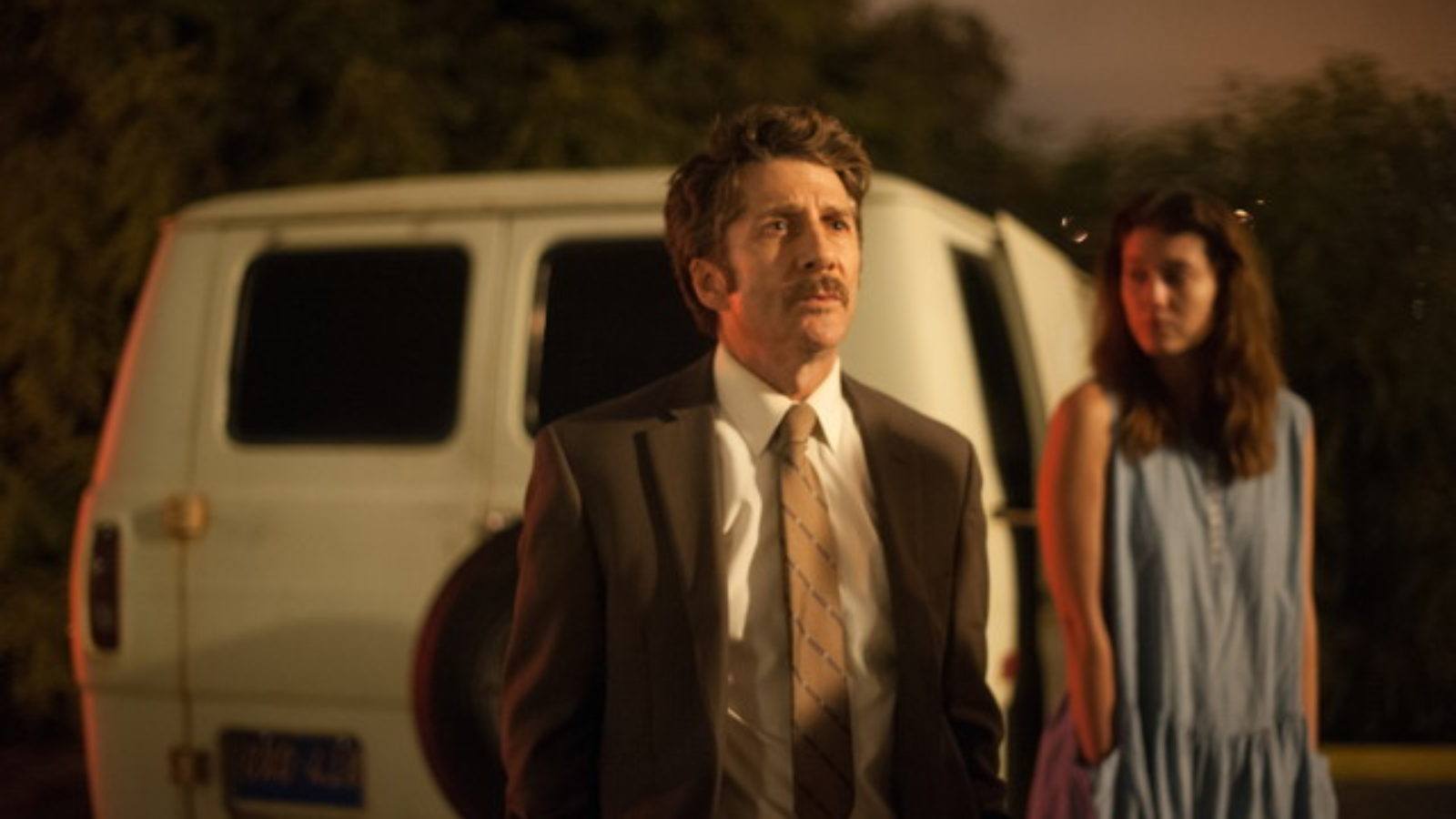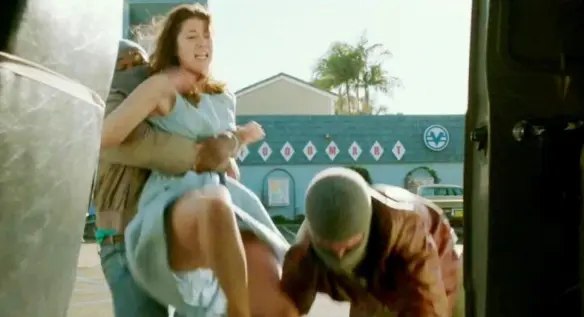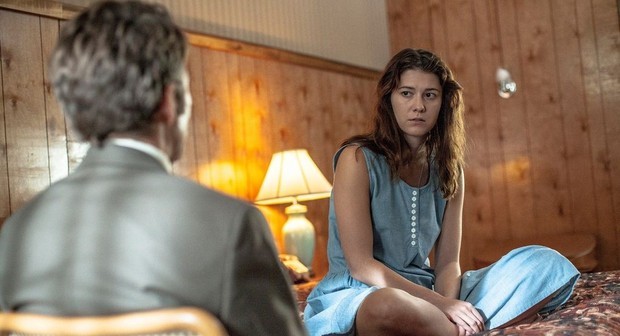Faults (2014)

Faults is a dark psychological horror-comedy released in 2014, written and directed by Riley Stearns in his feature film debut. The film stars Mary Elizabeth Winstead, Leland Orser, Jon Gries, Beth Grant, Chris Ellis, and Lance Reddick. With its unsettling mix of tension, dark humor, and psychological intrigue, Faults creates a compelling and thought-provoking narrative that delves into the complexities of cults, manipulation, and the fragility of the human mind.
The story revolves around Ansel Roth (Leland Orser), a former expert in deprogramming cult members who is struggling both professionally and personally. His career is in decline, and he is deeply in debt. Roth is hired by a couple to “deprogram” their daughter, Claire (Mary Elizabeth Winstead), who has been brainwashed by a cult. Roth takes on the task, traveling to a remote motel to convince Claire to abandon her newfound beliefs. However, the situation quickly escalates as Roth faces unexpected challenges in his attempt to break Claire’s loyalty to the cult and uncover the truth behind her transformation.
One of the film’s standout elements is its unique blend of genres. Faults is both a psychological thriller and a dark comedy, using humor to offset the intense and disturbing psychological manipulation that is at the heart of the story. The film constantly plays with the audience’s expectations, shifting from moments of tension to unexpected dark humor. This combination creates an unsettling atmosphere, where the audience is never quite sure whether to laugh or feel deeply uncomfortable. The tone is one of ambiguity, and the film succeeds in keeping viewers on edge throughout.
Leland Orser delivers a standout performance as Ansel Roth, portraying a man who is both desperate and deeply flawed. Roth’s inner turmoil and desperation are evident in Orser’s performance, as he struggles with his professional failures and personal demons while dealing with the increasingly bizarre situation with Claire. Mary Elizabeth Winstead also shines in her role as Claire, capturing the vulnerability and manipulation that come with her involvement in the cult. The dynamic between the two leads is central to the film’s success, as both characters are deeply complex and their evolving relationship keeps the audience invested.

The pacing of Faults is slow and deliberate, allowing tension to build gradually. The film’s isolated setting, primarily confined to the motel room, intensifies the feeling of claustrophobia and discomfort. As Roth and Claire’s interaction becomes more intense, the walls seem to close in on both of them, creating a palpable sense of dread. Stearns’ direction ensures that the tension never lets up, maintaining a sense of unease and mystery throughout the film. The lack of clear answers about what is real and what is manipulation keeps viewers guessing until the very end.

Thematically, Faults explores the nature of control, belief, and the power dynamics between individuals. The film raises important questions about free will and manipulation, as Roth’s own troubled past and the cult’s influence over Claire become key elements in the narrative. The exploration of cults and psychological manipulation is depicted in a chilling yet thought-provoking way, offering a commentary on the vulnerability of the human mind when faced with persuasive ideologies and emotional manipulation.

In conclusion, Faults is a chilling, darkly comedic, and psychologically intense film that explores the complexities of belief and manipulation. Riley Stearns’ direction, combined with strong performances from Leland Orser and Mary Elizabeth Winstead, creates a film that is both unsettling and deeply thought-provoking. Its unique blend of horror, psychological drama, and humor makes it a standout in the genre, leaving audiences with much to reflect on long after the credits roll.











